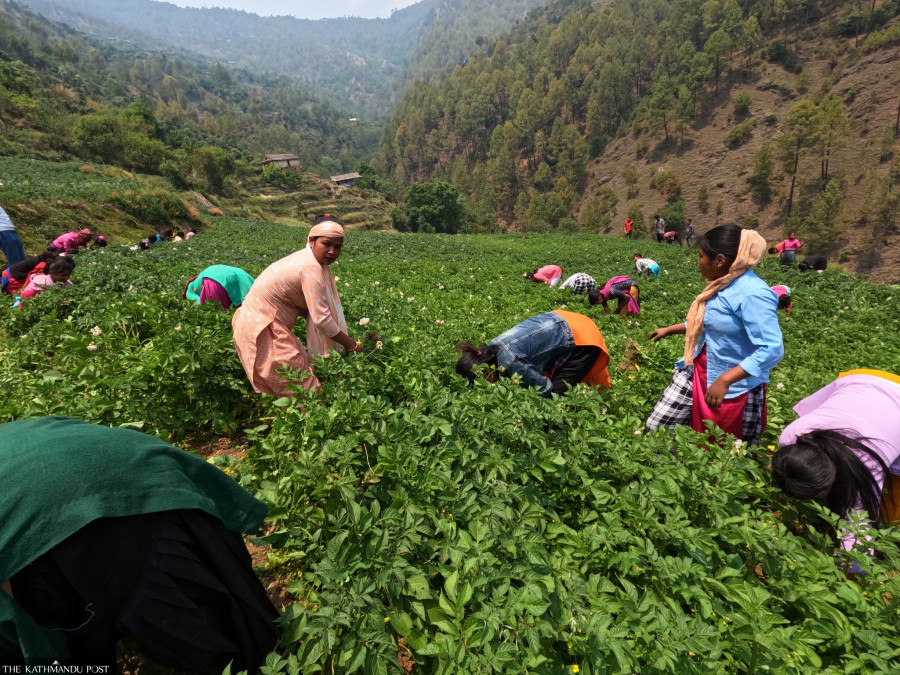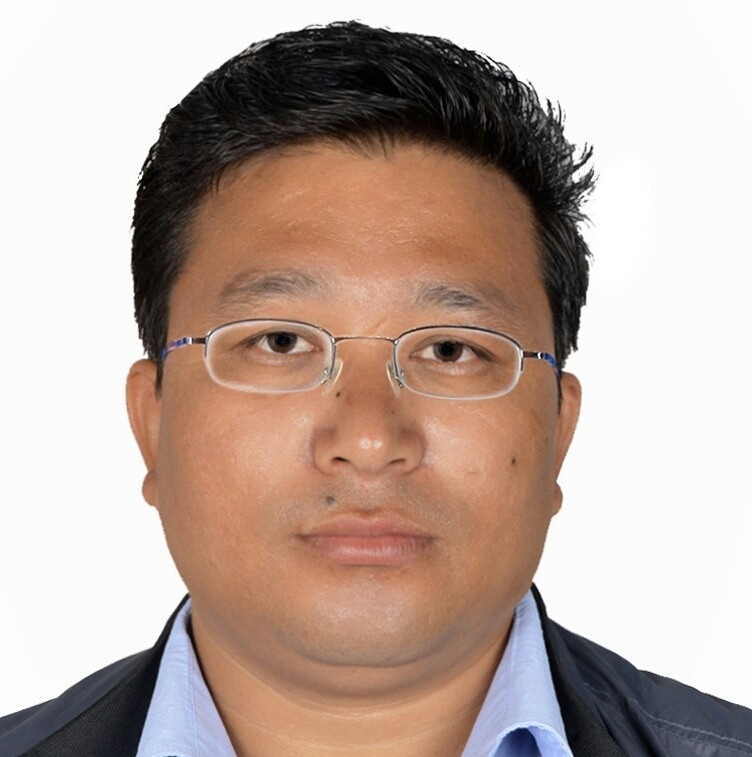National
Some Rolpa schools are teaching students livelihood skills alongside classroom education
Students cultivate crops, rear livestock, and make handicraft items. ‘Kamaundai padhdai’ or earn-as-you-learn campaign is gaining traction.
Kashiram Dangi
The Siddhartha Secondary School, located in Jinabang in ward 3 of Gangadev Rural Municipality, Palpa, has found a way to attract students and make them independent. The school launched a campaign called ‘Kamaundai Padhdai’ meaning ‘earn as you learn’ for students some four years ago in order to equip students with academic knowledge and practical skills.
Teacher Prem Bahadur Wali, the coordinator of the campaign, says despite Jinabang’s remote location, the school’s innovative educational approach has become very popular not only locally but throughout the district.
The school runs classes up to grade 12, with 550 students in total.
“At our school, along with the academic curriculum, students are also encouraged to learn practical knowledge and skills like agriculture, music, and art, among other things,” said Wali.
Sometimes the students are busy farming, and other times they are engrossed in creating music, he said.
“As far as our resources allow, we are dedicated to teaching more skills to the students, so they can have better prospects ahead. Encouraging them to become independent from an early age means our students can pursue their dreams without any worries,” Wali added.
According to KB Gurung, chairman of the management committee of the school, they conduct several training programmes regularly with a focus on agricultural production and as an extracurricular activity.
The aim is to teach practical knowledge for their social advancement, he said.
“Twice a year, a week-long programme is held under the supervision of skilled teachers of Nepali traditional music and instruments, which are on the verge of extinction. Dr Devi Nepal, a famous writer of Nepali literature, has also visited the school to teach the students how to write and perform poems, songs, and ghazals,” Gurung said.
“Our students play musical instruments such as Naumati Baja (a set of nine traditional musical instruments) and Panchai Baja (a set of five instruments). When our students perform with instruments like Sanai, Narsinga, Dholak, Damaha, Tyamko, Jhyali, Madal, and Karnal at functions inside and outside of the school, one can see the joy in the faces of locals, especially the elderly. This is because due to the influence of western music, very few young people are familiar with our Nepali music and instruments,” Gurung added.
“The plan of the school is not only to produce academically qualified students but also to help them become independent and encourage them to pursue their passions,” said teacher Wali.
According to Wali, a group of 37 students raised ducks, another group of 80 cultivated garlic, and yet another group of 71 students raised chickens. Apart from that, several others grew potatoes, tomatoes, bananas, cabbage, and fruits, and earned money.
Last year, a group of 46 students earned Rs350,000 by selling the potatoes they had grown.
According to the school principal, Bir Bahadur Gharti, more of his students are now involved in home-based businesses with their parents.
“After students make profits from these businesses, the school deducts the initial investment and distributes the profit among the students. Students use the money to buy stationery, uniforms, lunch and other study materials,” he said.
The school also provides other skill-based training, such as making bamboo baskets, by employing locals.
“Our efforts, teaching methods, and 'Kamaundai Padhdai’ campaign have proven effective,” Gharti added.
Similarly, Bir Balabhadra Secondary School, located at Thabang in ward 2 of Thabang Rural Municipality, has been teaching students practical skills alongside classrooms.
Kul Bahadur Wali, the school principal, says his school emphasises a holistic approach to teaching-learning.
“Besides academic studies, our school gives equal importance to imparting agricultural and handicraft skills to students. Our students grow mushrooms, vegetables, and fruits, and sell them in the market. The goal is to make them self-reliant.”
Dhabang Basic School in Dhabang in ward 6 of Rolpa Municipality teaches its students the craft of making essential handicraft items like baskets and bags from bamboo.
Birendra Secondary School, located in Gairigaun in ward 7 of Triveni Rural Municipality, is also running similar skills-based extracurricular training for its students.
According to all these schools, they lease lands for students to grow crops, rear cattle and engage in various other activities. After students make profit from these business ventures, the school deducts the initial investment and shares the profit among the students.
Out of over 400 schools in 10 local units in the district, only a few are offering skills-based training programmes.
According to Sandip Thapa Magar, an educational campaigner, the innovative programmes conducted by the schools make it easier for students to gain life skills and knowledge, even with limited resources. “If every school in the district adopts such initiatives, we can achieve equality and prosperity everywhere,” said Magar.




 18.98°C Kathmandu
18.98°C Kathmandu














